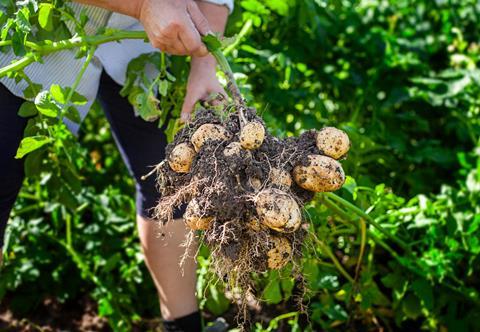The first large-scale AI project to validate regenerative practices in potato production will take place in the UK with funding from a major EU grant
The first attempt to use AI to validate the effect of regenerative farming in potato production will take place in the UK.

The project, led by agricultural AI pioneer Cropin and funded by a €700,000 (£605,000) grant from the EU’s EIT Food innovation agency, is thought to be the first to apply ‘big data’ to regenerative practices.
It will look at whether practices such as reducing fertiliser and cover crops could increase yield and dry matter content, and reduce water use, using real-time field data, computer models and predictive analytics, as well as satellite imagery and sensors.
“As regenerative agriculture gains momentum, the absence of verifiable, measurable outcomes poses a real challenge to meaningful, scalable impact,” said Krishna Kumar, CEO and founder of Cropin.
Processors need potatoes with high dry matter content, and while regen practices can meet these demands, evidence shows yields can fall in the early years of transition, according to the company.
“Without robust digital systems, farmers struggle to consistently uphold regenerative principles. Through AI, data intelligence, and real-time decision-support, we are bridging this critical gap, bringing precision, accountability, and scale to regenerative agriculture,” said Kumar.
Initially, the scientific validation will be carried out on farms in Denmark, in partnership with Aarhus University, with the first commercial pilots at a UK potato processor. A second pilot will follow in Germany.



